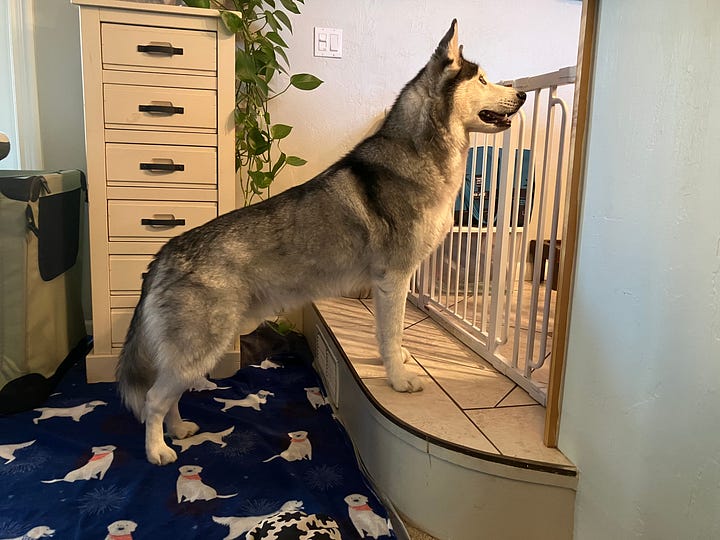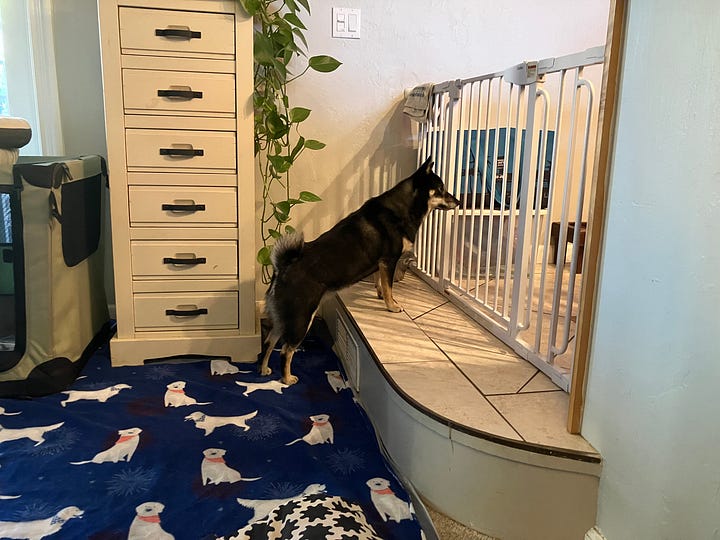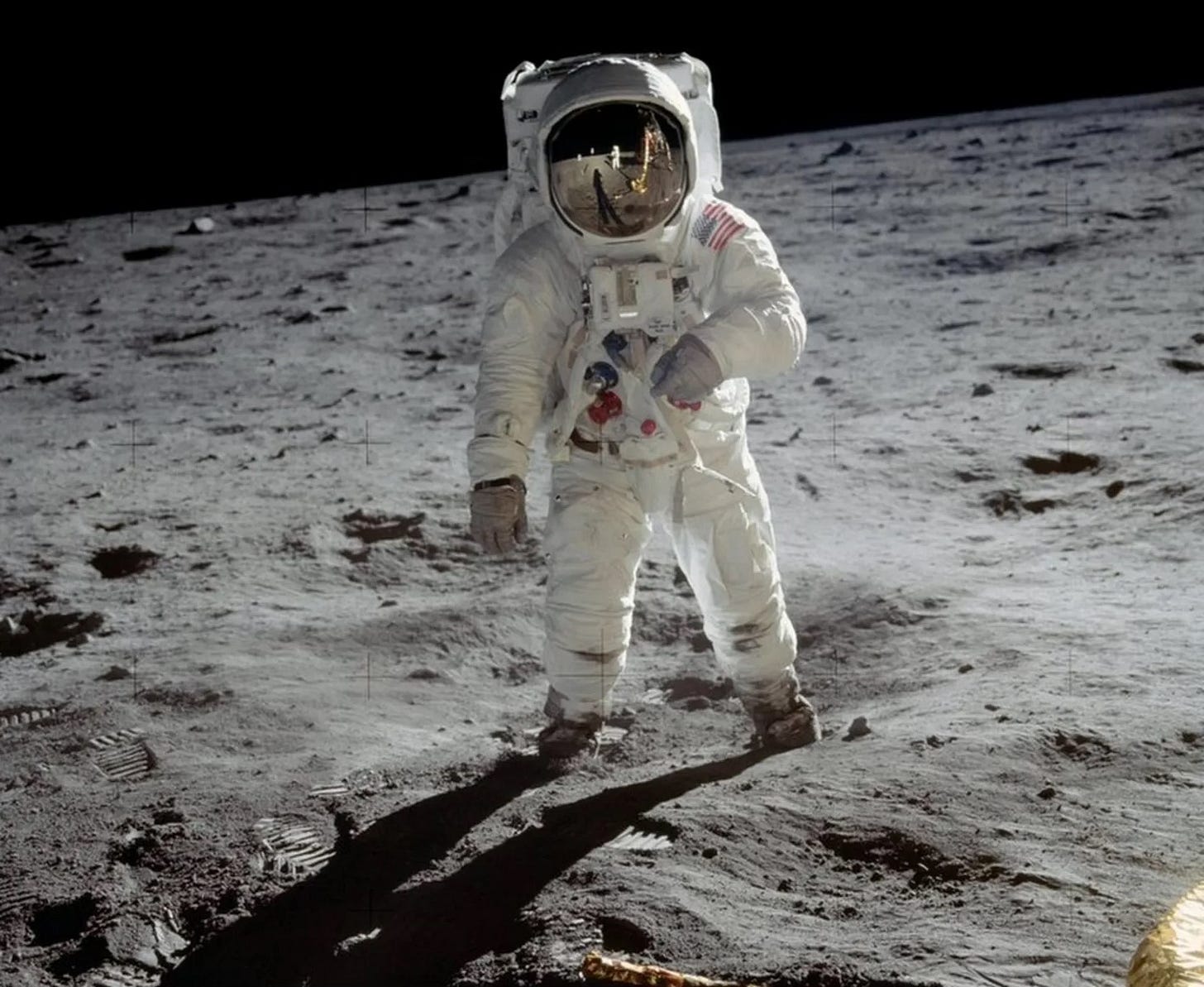You Are Not a Problem to Be Solved
What trees know that humans forgot
Welcome to Beyond Self Improvement issue #132. Every other Wednesday, I share an essay with practical ideas on finding personal freedom in an unfree world.
Dear Friend,
Nearly everyone believes something is fundamentally wrong with them.
They download meditation apps, buy productivity planners, and sign up for transformation courses. They chase the perfect morning routine, the ideal body weight, the anxiety-free mind, always convinced that the next book or workshop will finally fix what’s broken.
But I’d like to propose that there is absolutely nothing wrong with you.
I’m not saying you’re morally perfect, nor that your habits couldn’t be improved. I’m saying something more profound: your very existence, this moment, this breath, this felt sense of being alive, is already complete.
You see, you’re not something separate from nature, observing it from the outside. You are as much a part of nature as a caterpillar, an oak tree, or a planet. You didn’t come into this world as a visitor. Instead, you came out of it, like an acorn from a tree or lava from a volcano. The universe doesn’t make mistakes when it creates galaxies, and it didn’t make one when it created you.
This isn’t mystical thinking but factual. Every atom in your body was forged in the heart of a star. Your thoughts, emotions, and peculiarities are as natural as hurricanes or the sound of wind through trees.
Now, most of us were raised to feel as though we are separate from the world, individual beings trapped inside what Ram Dass referred to as spacesuits, looking out at a world “over there.” We learned to see ourselves as isolated individuals who must prove our worth through achievement and improvement.
This feeling of separation creates an exhausting cycle. We become actors in a world of self-improvement, constantly fixing, adjusting, striving, as if life were a test we might fail rather than an experience we’re meant to have.
But here’s where things get complicated. From childhood, we learn to go against our natural instincts. We sit still for teachers when we’d rather move around. We clean our rooms for our parents even though we like them messy. We say “thank you” when we want to say “I don’t feel comfortable with that comment.” By following rules and overriding our nature, we learn the great myth: that we’re somehow not enough, that we must become someone rather than simply exist.
You see, from the very beginning, we’re conditioned to believe life is one big audition. That we’re here to prove something to parents, teachers, society. We embark on the great self-improvement project, forever trying to fix our flaws. But what if the meaning of life is just to be alive? What if existing is enough and you have nothing to prove to anyone?
Here’s a simple exercise: Close your eyes and notice the sensation of being alive before any thoughts arise. Feel your breath. Sense the aliveness that’s present right now. That’s you, not your trauma, not your shortcomings, not your goals, just the simple fact of being here. What do you think?
The truth is, your imperfections aren’t manufacturing defects. They’re part of the design. Have you ever seen an oak tree trying to grow longer limbs or a deer trying to “get ahead”? They exist because existing is their nature. You work the same way, and you don’t need to earn your place here any more than they do.
You see, when someone says “there’s nothing wrong with you,” your conditioned mind immediately protests. “But what about my failures? My bad habits? My anxiety?” Yet all of that is part of who you are, part of your unique pattern in the fabric of existence.
Have you ever seen a river trying to flow faster? Have you ever watched a cat practicing how to be graceful? They do what they do because it’s their nature. You, too, are a natural happening. You don’t have to force it or optimize it. It occurs naturally when you stop interfering with it.
Paradoxically, most of us spend tremendous energy trying to “be ourselves.” But the moment you want to capture authenticity, you’ve already lost it. It’s like trying to look natural for a photo. The trying prevents the naturalness.
Authenticity isn’t something you achieve through self-improvement methods. It’s what remains when you stop pretending. It’s not about becoming someone. It’s about recognizing who you already are beneath all the masks and roles.
Now, of course, there’s nothing wrong with wanting to improve your skills or build better habits. The issue isn’t with growth but with the underlying belief that you’re somehow broken and need fixing. When you operate from wholeness rather than deficiency, improvement becomes a form of play rather than work.
Here’s something worth considering: the person you think you are was constructed mainly by other people. Parents, teachers, and society told you who you are through glances, comments, and expectations about what’s acceptable, what earns love, and what makes you valuable. Without realizing it, you shaped yourself according to these reflections: the sweet girl, the strong boy, the productive adult.
These roles are helpful, but they are not you. Eventually, this creates a split, like walking around in shoes two sizes too small. You sense that who you are isn’t the performer but the awareness behind the performance. The real you is the one who doesn’t need to be good, liked, or impressive. You are the space that’s been watching all these performances your entire life, unchanged by all the changes you’ve experienced.
So then what’s left? If you’re not your thoughts, your roles, or the identity you’ve been defending, what are you? You are the awareness that witnesses thoughts as they come and go. You are the space in which experience arises and passes. This isn’t about adding anything. It’s about subtracting, letting go of the exhausting project of trying to become someone else.
So how do you actually live this way, without constant grasping and fixing? Like the earth. The earth doesn’t hold onto trees or oceans. It simply allows everything to pass through. When you realize you are the earth and not just a passing phenomenon, everything becomes more spacious. You begin to trust life more, not because you’ve figured out how to control everything, but because you’ve let go of the need to.
So instead of chasing some perfect version of yourself, what if you observed who you are right now? There's no need for any improvements. You might discover something surprising: the voice telling you something’s wrong isn’t actually you. It’s just a thought. You are the space in which that thought comes and goes. When you see this clearly, the struggle comes to an end.
And so we return to where we started: there is nothing wrong with you. This isn’t a comforting platitude. It’s a liberating truth. You are not a problem to be solved or a rough draft to be edited. You are nature expressing itself in human form, as natural and necessary as mountains and oceans.
When you see yourself clearly, not as a problem to be fixed, but as a natural phenomenon like wind or lightning, everything changes. You realize you were never broken. You were never too much or too little. You were exactly what you were supposed to be. Not perfect, but complete. The only thing left to do is stop pretending otherwise and just be who you already are.
Because once you stop chasing after some future version of yourself, you’ll realize you’ve been home all along, not in some achievement or approval, but in the simple, sacred fact that you exist.
And that, it turns out, is quite enough.
Keep being,
Ryan
If this essay resonates with you, consider sharing it with someone who could benefit from hearing it.





There is nothing ever wrong with anything ever
I love the exercise you shared, Ryan. Yes, sense the aliveness that’s present right now. It's so easy to get caught up in the business the mind can create. Bringing yourself back to the present is always powerful.